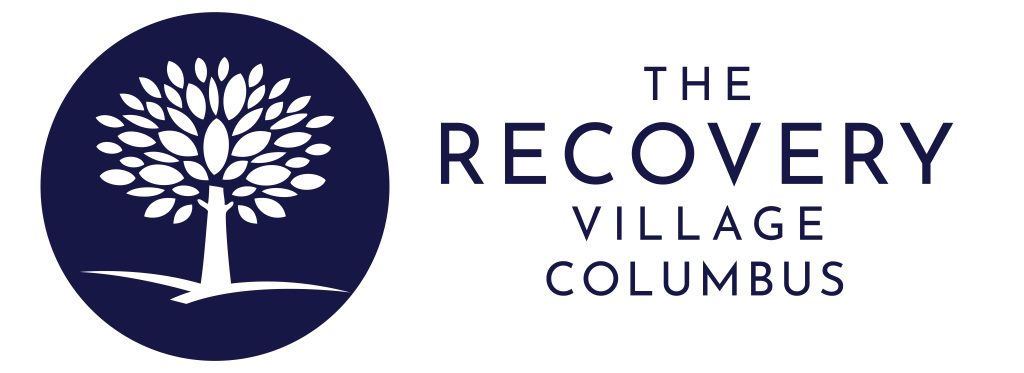Benzo Addiction & Abuse in Ohio

By The Recovery Village Columbus
Last Updated: January 06, 2023
Benzodiazepines, sometimes called “benzos,” are prescription medications that slow down the central nervous system. They work by enhancing the effects of GABA — a neurotransmitter mainly responsible for inhibiting signals in the brain and nervous system. This calms excessive nerve activity, making benzodiazepines useful in treating many different types of conditions:
- Seizures
- Sleep problems
- Muscle spasms
- Anxiety
- Alcohol withdrawal
However, benzodiazepines are controlled substances with a high potential for abuse, dependence and addiction. People who abuse benzodiazepines often need medical treatment to stop using these substances.
Most Common Benzodiazepines
Some of the most commonly used benzodiazepines are Ativan, Valium, Xanax and Klonopin. This class of drugs is frequently prescribed throughout Ohio and across the country.. While there have actually been more than 2000 different kinds of benzodiazepines produced in the past, only about 15 are currently approved by the FDA.
Xanax
Xanax is a short-acting benzo that generally comes as the generic product alprazolam. Xanax is available as a 0.25 mg, 0.5 mg, 1 mg or 2 mg tablet. It typically starts working in under an hour, has a short half-life of approximately 11 hours, and effects can last between 4–6 hours. However, an extended-release form of the medication is also available for once daily dosing.
Klonopin
Also known as clonazepam, Klonopin is a long-acting benzo available in 0.125 mg, 0.25 mg, 0.5 mg, 1 mg or 2 mg doses. It may come as a tablet or “wafer” that dissolves under the tongue. Klonopin starts working within an hour, with a half-life of 30–40 hours. Effects usually last for 8–12 hours, meaning it can be taken less often than some other benzodiazepines.
Ativan
Available under the generic name lorazepam, Ativan typically comes as 0.5 mg, 1 mg or 2 mg tablets. It is another short-acting benzo that starts working in under an hour, with the maximum effects seen around two hours, and a half-life of 10–20 hours. Ativan is also available as an extended-release capsule and can be given by injection into the muscle or IV in certain settings.
Valium
Valium is another long-acting benzo sold under the generic name diazepam. Valium is most often taken as a 2 mg, 5 mg or 10 mg tablet. However, the medication can also be given nasally or rectally, injected into the muscle or through an IV in some settings. The onset and length of effects will depend on how it is given, but oral tablets usually start to work in 15 to 60 minutes, with effects lasting more than 12 hours, and a long half-life of 30–60 hours.
Are Benzodiazepines Addictive?
Benzodiazepines are quite common, and they do have many medical benefits. Unfortunately, they can also be very addictive and are commonly abused. Short-acting medications such as Xanax and Ativan tend to be more addictive because they start to work quickly and peak faster, making the effects feel more intense.
Benzodiazepines cause pleasurable effects – feelings of deep relaxation and sedation. This can make them more desirable for those who become addicted to them. They are also readily available throughout the state and country, and easy access can make them more likely to be abused when not taken as directed.
Benzos can be misused or abused in a few different ways. People may take a large amount at one time, or pair the medication with other substances such as opioids or alcohol, which can be extremely dangerous and can even lead to death. Others chronically abuse the medication. This occurs when someone becomes dependent on them after a prolonged period of time, and they no longer feel normal without taking them.
Signs that someone may be taking too much of a benzodiazepine can include:
- Extreme drowsiness
- Confusion
- Blurred vision
- Coordination problems
- Slurred speech
- Breathing problems
In some serious cases where a person has become physically or mentally dependent on benzodiazepines, they may lose interest in activities or relationships they used to enjoy, and their use can start to negatively affect home life, school or their career.

Recovery is possible.
If you or a loved one are struggling with addiction, help is available. Call to speak with a Recovery Advocate about treatment options today.

Why Are Benzodiazepines Addictive?
For residents of Columbus, Cleveland, Cincinnati and other Ohio cities, benzodiazepine abuse is becoming an increasingly dangerous problem. Many people wonder why this class of drugs is so addictive.
When a person takes a benzodiazepine, it works through the GABA receptors to cause a surge of dopamine in the brain. This triggers the reward center, telling the brain to repeat the activity. With chronic use, a cycle of addiction can begin. The effects of benzodiazepines are similar to the effects of opioids or cannabinoids in this way.
Benzodiazepine Addiction Statistics
Benzodiazepine abuse is being studied by researchers, lawmakers and medical professionals throughout the state of Ohio and across the nation. Statistics show issues with benzodiazepine abuse are still a serious public health problem:
- Between 1996 and 2013, US adults filling benzodiazepine prescriptions increased by 67%.
- In 2016, 13.7% of overdose deaths in Ohio involved benzodiazepines.
- Approximately 92 million benzodiazepine prescriptions were filled in U.S. pharmacies in 2019.
While benzodiazepines are some of the most regularly prescribed drugs in the country, they are also highly addictive prescription medications. All throughout the nation, there has been a spike in overdose deaths related to benzodiazepines or a combination of benzodiazepines and other medications or substances. Fortunately, for those who struggle with a benzodiazepine addiction, there are many different treatment options available in Ohio such as The Recovery Village Columbus.
Benzo Addiction Treatment in Columbus
Benzo addiction treatment at The Recovery Village Columbus includes a full continuum of care that often begins with medical detox, then moves on to inpatient and outpatient rehab.
Medical Detox
For individuals who have been chronically abusing benzodiazepines, a medical detox is typically needed to help get them through the initial benzo withdrawal symptoms. Stopping a benzodiazepine suddenly can be dangerous, but trained medical professionals at The Recovery Village Columbus can support someone through this important time in their recovery process by providing individualized care, 24/7 medical services, and withdrawal medication management. The detoxification process can range from 5-10 days or sometimes longer, depending on the person.
Residential Treatment
After successfully completing the detoxification process, patients transition to an inpatient program, also called residential rehab, at The Recovery Village Columbus. Here, individuals stay onsite at the facility and develop skills that will help them achieve long-lasting recovery. Patients can separate themselves from harmful influences while they gain insight into their addiction and work on getting their mind and body back to a healthy state.
Outpatient Treatment
In outpatient rehab, individuals live at home or in a sober living community while attending treatment and therapy at the facility. Outpatient care is reserved for people with less severe addictions or those who have already completed an inpatient stay. Individuals incorporate the coping skills they learned in residential treatment into their day-to-day lives.
